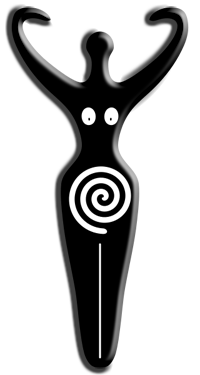Neopaganism
As it harms none, do as thou wilt.
- Traditional, from Crowley and Wiccan Rede

Introduction
Neopaganism is a revivalist movement powered by an amalgamation of primal traditions from various geographical areas and eras. An uncodified faith system with no central authority, it does not have many adherents or a set of canonical faith texts; and it is exemplified by almost personal faith practices and extreme variation in belief, purpose, and custom. One concept that has gained wide acceptance in Neopaganist thought is that each person should do what they decide is ‘right,’ with the term being defined as what benefits themselves and causes harm to no other.
Diversity
“Neopagan” refers to a reclamation of the formerly pejorative term “pagan,” used by Abrahamic religious tradition to refer to primal traditional faith practices everywhere in the world. While the original primal religions were localized and even sometimes exclusive to all but their adherents, the Neopagan movement has adopted a policy of universal acceptance and wide assimilation of the practices of many cultures. Common characteristics of all branches of Neopaganism include reverence for surroundings – usually natural, but sometimes urban – and the ability to personally direct material world change through the control of spiritual forces.
 One of the most popular and best-established branches of Neopaganism is Wicca, which is a system
incorporating magic and which may venerate a Goddess, Horned God, or other deities. Wicca itself is
sectarian, almost to the point where most Neopagans fit someone’s definition of “
Wicca.”
One of the most popular and best-established branches of Neopaganism is Wicca, which is a system
incorporating magic and which may venerate a Goddess, Horned God, or other deities. Wicca itself is
sectarian, almost to the point where most Neopagans fit someone’s definition of “
Wicca.”
Other popular branches of Neopaganism include types of animism; specifically Shamanism, which is typically a leadership-based and intuitive system of spiritual interaction; and Druidism, which is typically a communally-led and ritualistic system of spiritual interaction. Neopaganism has enacted the rise of scientifically-integrated physical, mental, and spiritual healing practice systems involving techniques such as ayurveda, yoga, acupuncture, massage, herbalism, alchemy, and psychonautical travel.
Newness and Lack of Educational Resources
Unfortunately, the demand for spiritual fulfillment in the Neopagan faith system is currently in crisis as many who are interested in Neopaganism are at a loss to find good teachers, be those teachers practicing Neopagans or simply good books due to the lack of history and ritualistic tradition. Undoubtedly Neopaganism will grow in value and importance over time.
Necessity of Community
Neopaganism is currently difficult to explain in text form due to its rich varieties of practices. Interested parties are encouraged to join a Neopagan community to get guidance from a practicing and experienced Neopagan or even start a new Neopagan community, rather than attempt solitary research in books.
The Internet can be key resources for finding other Neopagans. Neopagans tend to congregate in cities in spite of the preference to perform rituals in a natural setting. To remedy to this problem is a community issue much like successful churches of older faiths incorporate social networks to serve their members’ needs.
Organizations
The New Age movement is currently dispersed in the sense that no one organization has made enough of a significant contribution to achieve wide renown. Almost all successful New Age practitioners are talented individuals associated with either small schools or churches, private research firms, or simply their own family or community.

